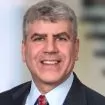Expert witnesses are critical to trial success in patent cases. While fact witnesses lay foundation, establish case themes, and can generate sympathy for one side or the other, it is usually the experts who give the jurors the raw material they need to reach an ultimate decision on liability and damages. The credibility and thoroughness of an expert's testimony—on direct, cross, and re-direct—can thus have a significant impact on the outcome of a patent case that makes it to trial. The following best practices can help parties find the right experts and prepare them to deliver a standout performance.
Move Quickly to Retain Experts
As a plaintiff, line up technical and damages experts before filing suit. As a defendant, begin the expert search in the days (not weeks) after a suit is filed. Not infrequently, the technical field is narrow and the number of highly qualified technical experts is limited. When representing one of multiple defendants, there are important tactical reasons to retain key experts quickly. Being the first to develop a rapport with an expert who will ultimately testify for multiple defendants can increase an attorney's influence in strategic decisions about that expert's testimony. Sometimes, early retention of a particularly strong expert can even lead a plaintiff to consider a favorable settlement in hopes of taking that expert "off the market" before other defendants execute a joint retainer agreement with him or her.
Become a Detective
The best expert is one who has worked in the particular niche of the asserted patent. While an expert with a Ph.D. in electrical engineering could likely testify regarding a wide range of technologies falling under the umbrella of his or her degree, expert testimony is more convincing when it comes from someone with deep experience in the specific technology in question. Finding candidates who fit that profile often requires serious detective work. A good starting point is to research the experts who have testified regarding similar technologies in prior cases, and then compare their backgrounds to the specific technology of the patent-in-suit. Contacting the authors of key prior art references can also be a very effective strategy. Even if such individuals turn out not to be a perfect fit, or do not have the time or interest to serve as an expert, they can almost always provide additional recommendations. The expert search usually nears a favorable conclusion when a variety of different search strategies converge toward the same candidates from multiple directions.
Standard cautions apply: Be sure to clear conflicts before discussing the case in detail, presume that any written communications are discoverable at least until an engagement letter is signed, check references to determine the candidate's strengths and weaknesses, confirm that prior courts have not criticized him or her, and scrutinize the candidate's publications for statements potentially in tension with likely arguments and trial themes.
Retain Multiple Experts
Budget permitting, it is very helpful to retain a number of experts even if there is only one patent-in-suit. More experts means a better chance, as a defendant, of finding killer prior art. More experts also means more perspectives, which leads to stronger ultimate reasoning behind many issues in a case. Working with multiple experts in the early stages of a case (e.g., while searching for prior art) affords an opportunity to evaluate their respective strengths and weaknesses personally before making a decision about who will testify at trial. Perhaps most importantly, this process inevitably provides a sense of how much time an expert is prepared to devote to the case, which is one of the most important factors in achieving a successful outcome.
Knowledge, Time Over Pedigree
Conventional wisdom prizes an expert's academic pedigree. Yet practical knowledge in the field, developed through industry experience, can be more impressive to a jury than advanced degrees and diplomas from prestigious institutions. Real-world experience about how "persons of ordinary skill in the art" actually think (or thought at the relevant time) can be a convincing rebuttal to ivory tower pronouncements. Thus, while an impressive pedigree is certainly desirable, all other things being equal, the entirety of an expert's background should be evaluated when deciding who will testify.
Equally important is an expert's willingness (and hopefully enthusiasm) to spend the time necessary to master the issues in a case. In a patent case, many issues may be in play—claim construction, infringement issues for a variety of accused products, validity challenges based on numerous prior art references, and questions concerning the adequacy of the asserted patent's disclosure. Double-edged swords abound in patent law; there can often be tension, for example, between a party's obviousness arguments and its enablement arguments. Mastering all of the relevant topics and nuances for deposition and trial is critical to success, and not every expert is able or willing to commit the necessary time. There are few circumstances more frustrating than hiring the seemingly "perfect" expert (based on technical background and pedigree), only to later discover that he or she will not be properly prepared due to an insufficient amount of time spent with the material. Thus, stress-testing an expert's commitment to the case early on is a vitally important step before committing to that person as a testifying trial expert.
It is likewise important not to overload a single expert with too many patents and issues. In a multi-patent case, multiple testifying experts should be considered, even if one could potentially handle all of the technology, to keep the number of issues manageable within the time commitment the expert is prepared to make.
Spend Ample Time Together
Trial testimony is not a lecture; it is a conversation between two people, the questioning attorney and the expert. While direct testimony is largely scripted, there are inevitably last-minute issues that arise, and adjustments that must be made, whether due to rulings by the judge, unexpected testimony from other witnesses, or simply a failure (by either the questioning attorney or the expert) to follow a script to the letter. At trial, some or all of these challenges almost always occur. And re-direct is difficult to script since the opponent's cross-examination strategy is not known in advance.
There is only one remedy for the unpredictability of trial: The questioning attorney and the expert must know one another well. The rapport that comes from having spent considerable time together, in person, working through the relevant issues over the course of a case is irreplaceable in preparing a questioning attorney to deal with the inevitably necessary last-minute adjustments to an expert's testimony. A skilled pair (questioner and expert) who have spent sufficient time together can make the conversation appear seamless and smooth even in the face of considerable challenges, about which the jury need never know.
As trial approaches, preparation for cross-examination is of great importance because an expert's demeanor under cross, as much as the substantive content of the testimony elicited, will influence the jury. A questioning attorney should adopt the mindset of the opposing party and craft hard-hitting cross modules so that practice sessions are as productive as possible. Experts and counsel can minimize surprises at trial by grappling with, and practicing, the answers to every difficult question that can be brainstormed.
Questioning the Expert
For reasons already explained, the questioning attorney needs to know what the expert knows and what the expert will say when questioned on a particular topic. If (likely when) cross-examination covers unanticipated topics, or predictable topics but in an unanticipated way, it is difficult to conduct an effective re-direct without the rapport that comes from a lawyer and expert having spent significant time together.
Therefore, it is important to staff the case from the outset with trial in mind. The attorney who works most closely with the expert during the expert report and deposition phases of the case will inevitably be in the best position to question that expert at trial. Too often, a junior partner or a skilled associate handles much of the day-to-day expert work until shortly before trial, when a more senior trial attorney parachutes in to present the expert's testimony. Despite many years of trial experience, the senior trial attorney may struggle in presenting portions of the expert's testimony due to a lack of sufficient familiarity and rapport with the expert. It bears noting, as many judges have indicated over the last several years in standing orders encouraging younger attorneys to participate in trials, that younger attorneys—if properly prepared by senior trial counsel—may be in the best position to present an expert's testimony at trial. Alternatively, litigants should secure a firm commitment from senior trial counsel to work actively and hands-on with the expert from the outset of the case.
Originally published by The New York Law Journal)
The content of this article is intended to provide a general guide to the subject matter. Specialist advice should be sought about your specific circumstances.


